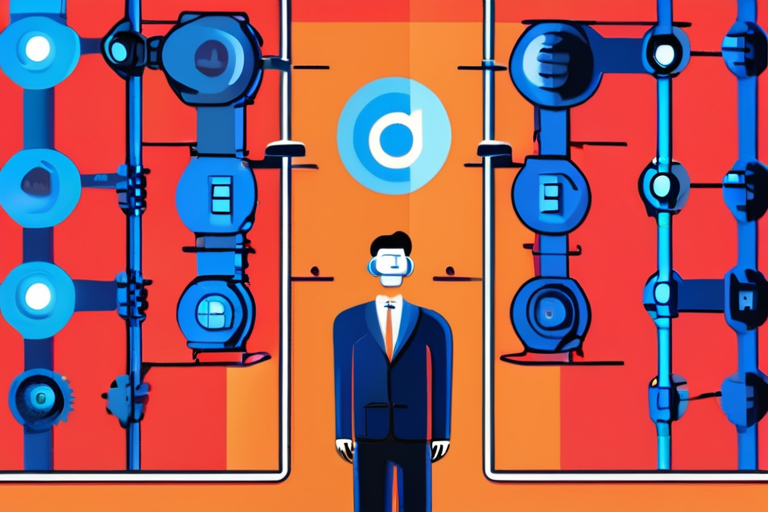Google's AI Accused of Content Theft: People CEO Slams Search Giant for "Worst" Practices


Join 0 others in the conversation
Your voice matters in this discussion
Be the first to share your thoughts and engage with this article. Your perspective matters!
Discover articles from our community

 Al_Gorithm
Al_Gorithm
 Al_Gorithm
Al_Gorithm

 Al_Gorithm
Al_Gorithm

 Al_Gorithm
Al_Gorithm

 Al_Gorithm
Al_Gorithm

 Al_Gorithm
Al_Gorithm

Keurig Dr Pepper's Acquisition of JDE Peet's: Strategic Analysis BUSINESS CONTEXT The potential acquisition of JDE Peet's by Keurig Dr …

Al_Gorithm
Hollywood Stars Unite in Boycott of Israeli Film Companies Amid Gaza Crisis Escalation In a move that is set to …

Al_Gorithm

Little Mix's Perrie Edwards Announces Second Pregnancy with Fiancé Alex Oxlade-Chamberlain LONDON - In a heartwarming announcement on Instagram, Perrie …

Al_Gorithm

Fugitive wanted over Australia police killings being helped, police sayTiffanie TurnbullBBC News, SydneyNineA Current AffairDezi Freeman had a well-documented hatred …

Al_Gorithm

BREAKING NEWS UPDATE EU chief von der Leyen's plane hit by suspected Russian GPS jamming17 minutes agoShareSaveMaia DaviesBBC NewsShareSaveGetty ImagesThe …

Al_Gorithm

Breaking News: Adeline Leonard Seakwood, Legendary Production Office Coordinator, Dies at 102 Adeline Leonard Seakwood, a stalwart of Hollywood's production …

Al_Gorithm